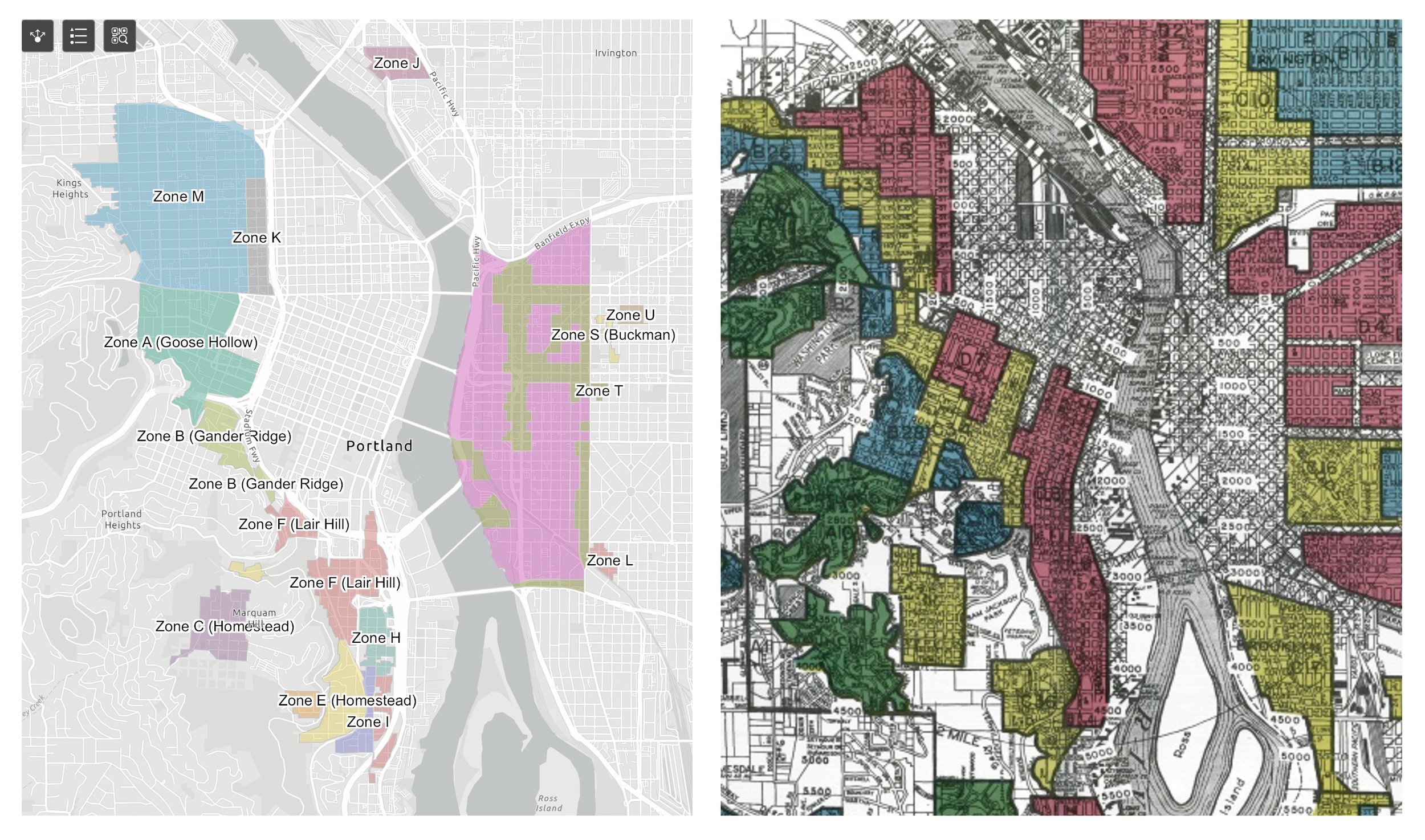Parking and Inequality
On Tuesday, March 29, the Local 328 bargaining team proposed a transportation-assistance memorandum of understanding that would offer (a) free TriMet passes and (b) free daily parking for our employees making $20/hour or less, in order to help alleviate some of the problems described in this post.
On Monday, March 21, OHSU posted an article about its use of license-plate recognition technology to enforce its traditionally controversial parking policies. I couldn’t help but think back on the kinds of comments you used to see on parking articles before OHSU stopped allowing comments on OHSU Now.
To understand why I found the article and its tone so frustrating, I think it’s important to understand that parking at and transportation access to OHSU are a source of inequity and a means of control, and parking enforcement in Portland isn’t about revenue and never has been.
First, I’ll give you some information about how parking and its enforcement works in the city of Portland. The initial step to add parking meters to a street in Portland is to apply for an Area Parking Permit Program. If requiring parking permits doesn’t address residents’ concerns, then meters can be considered. The process is primarily driven by complaints from residents rather than data. As such, it is rife with abuse and bias, as evidenced by how well the maps of parking-permit zones coincide with Portland redlining maps (especially considering the patterns of gentrification in Portland that have pushed communities of color further east and north, as whole neighborhoods have been displaced).
Source: PBOT Area Parking Permit Program Map Source: Mapping Inequality
Portland’s parking revenue brings in only about 60% of what it costs to run the program and it is hardly alone in that distinction, with cities like Los Angeles reporting similar trends. With revenue a secondary consideration, it becomes clear that other factors are at play. While there are good-faith arguments for parking restrictions, the way such restrictions are often created and enforced leads to very predictable disparities along racial and economic lines, which mirror what we know about the inequalities in the enforcement of public-transportation fares. When mostly BIPOC and people of limited means are targeted, the matter requires closer scrutiny.
Portland’s rent increases rank 10th fastest in the nation and inflation is up 7.9%, setting a pace that hasn’t been seen since the 1970s. It’s not surprising that workers pushed farther and farther from the city’s center due to rising costs are living in areas not well supported by Portland’s public-transit system and, therefore, have to drive to work. These same workers may struggle to afford OHSU’s high parking prices. Out of desperation, some may incur parking violations that are expensive and could cost them their job. Wage-based pricing can help, but it doesn’t address the underlying issues.
Now let’s talk a bit about OHSU parking enforcement and what it tells us about our employer’s priorities. According to OHSU’s 02 February 2022 Annual Rolling Summary, in October 2021, OHSU issued 288 parking tickets and 996 warnings:
That might sound like a lot but those numbers come from a total of 55,316 license-plate scans, meaning that only 0.52% of the scans led to a ticket being issued. From October 2021 through February 2022, there were 223,738 scans, which led to only 1,188 tickets (0.53% of scans). Relying on technology here means that, beyond the initial setup and maintenance, there isn’t a large investment of time or money in each of those individual scans, but these numbers illustrate where OHSU’s priorities lie.
Early in bargaining, OHSU rejected our proposal to bolster its tracking of employee demographics, partially due to the administrative costs. In effect, OHSU was willing to spend $6.5 million on the Covington report, but was willing to spend $0 to update employee records in order to track demographics that would help track patterns of discrimination, inequitable discipline and more. An investment in employee safety isn’t feasible, but technology that lets OHSU ticket one out of every 188 vehicles that parks on campus is.
We hope that the management bargaining team will reconsider the above proposal when we present it again, and that they will recognize what a benefit our transportation-assistance proposal will be to our members. Our union believes that it is crucial for OHSU to finally address the inequities at the workplace.


